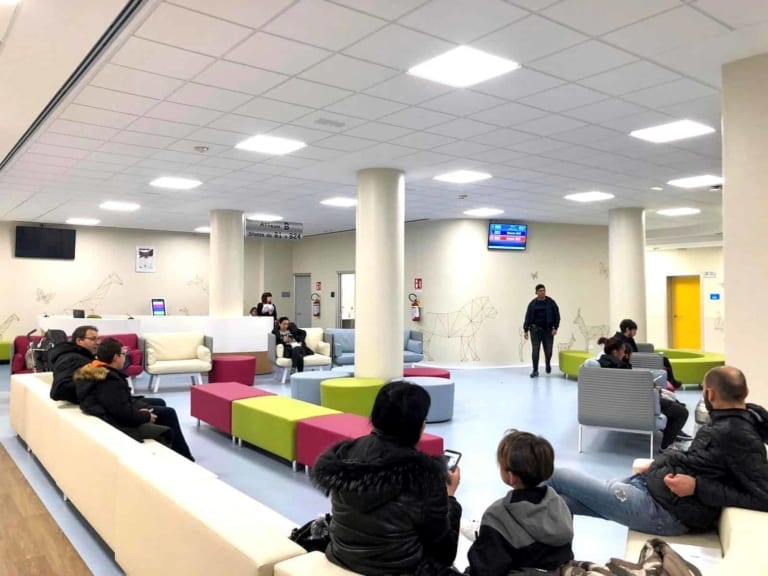
Servizio Clinico di Consulenza Genetica
IRCCS Ospedale Pediatrico Bambino Gesù – SEDE GIANICOLO
Piazza S. Onofrio 4
00165 ROMA
ITALY
Lead
Dr Davide Vecchio
Scope
The area of expertise of the Rome OPBG Centre of the ITHACA European Reference Network (ERN) covers all syndromes exhibiting developmental abnormalities and/or intellectual disability (ID). About 1/40 newborn has a congenital malformation (261/10000 fetuses and newborn following EuroCAt reports), and 1/40 has ID. Therefore, 3 to 5 % of all human births show or will develop a developmental anomaly, among which at least 25-50% are of genetic or genomic origin. The jurisdiction and scope of expertise of Bordeaux ITHACA Centre includes:
- over 5500 dysmorphic and multiple congenital anomalies (MCA) syndromes (listed in the London Dysmorphology Database), among which over 3000 monogenic diseases, all chromosome abnormalities (most of them only detectable through array technologies), multifactorial, sporadic dysmorphic anomalies and embryo-fetopathies of environmental origin
- >1500 monogenic and hundreds chromosomal forms of ID with or without associated autism spectrum disorder (ASD).
Service to patients
OPBG activity is centered on the needs of patients and families, especially in the field of rare defects and intellectual disability disorders, both diagnosed and undiagnosed. The OPBG Rare Diseases and Medical Genetics Unit is fully involved in diagnosis, management and treatment of these patients, and has in charge about 3,500 patients per year.
Organization of the ERN ITHACA Centre Rome (OPBG)
OPBG is a Scientific Institute for Research, Hospitalization and Health Care (IRCCS by the Italian law), providing advanced health care for children and performing basic, clinical and translational research activities. OPBG is the largest children’s hospital in Italy and one of the most prestigious in Europe. It is a referral center for all pediatric specialties and it is recognized at a national and international level. In OPBG are available more than 40 different specialties and adequate infrastructures to high quality and multidisciplinary care. The clinical activities consist of approximately 27,000 inpatient admissions, 77,000 day-hospital admissions, 6,000 day-surgery treatments and around 1,700,000 outpatient visits per year.
The Hospital’s clinical activities run side by side with its scientific research, aiming at constantly improving and innovating diagnostic and therapeutic procedures. OPBG’s Research Laboratories are located in a 5,000 sqm meters facility, fully equipped with high-tech systems, supporting –omics. In recent years, OPBG has contributed to the identification of more than 50 new genes associated with rare diseases or conditions.
OPBG is fully involved in education and training programs during graduation and post graduate courses (affiliation to Tor Vergata University, Rome, Italy). In addition, OPBG is a provider for Continuous Medical Education (CME) accredited by the Italian Ministry of Health.
OPBG is the nodal point for ORPHANET in Italy and is engaged with more than 300 Italian patient associations and more than 7.000 clinical centers active in the field of genetic and rare diseases at regional, national, European and global level.
The Hospital meets the Joint Commission International (JCI) quality standards for clinical care (last evaluation on October 2015).
OPBG Scientific Director, Prof. Bruno Dallapiccola, has been appointed as the Italian representative in EUCERD and, since 2014, in CEGRD, a position in which has been confirmed for the next 3 years. Prof. Dallapiccola has participated in drafting the first National Plan on Rare Diseases in Italy, and is now chairing the working group in charge of redacting the Second National Plan. He is member of the High Level Council at the Italian Ministry of Health and member of the National Committee for Bioethic.
